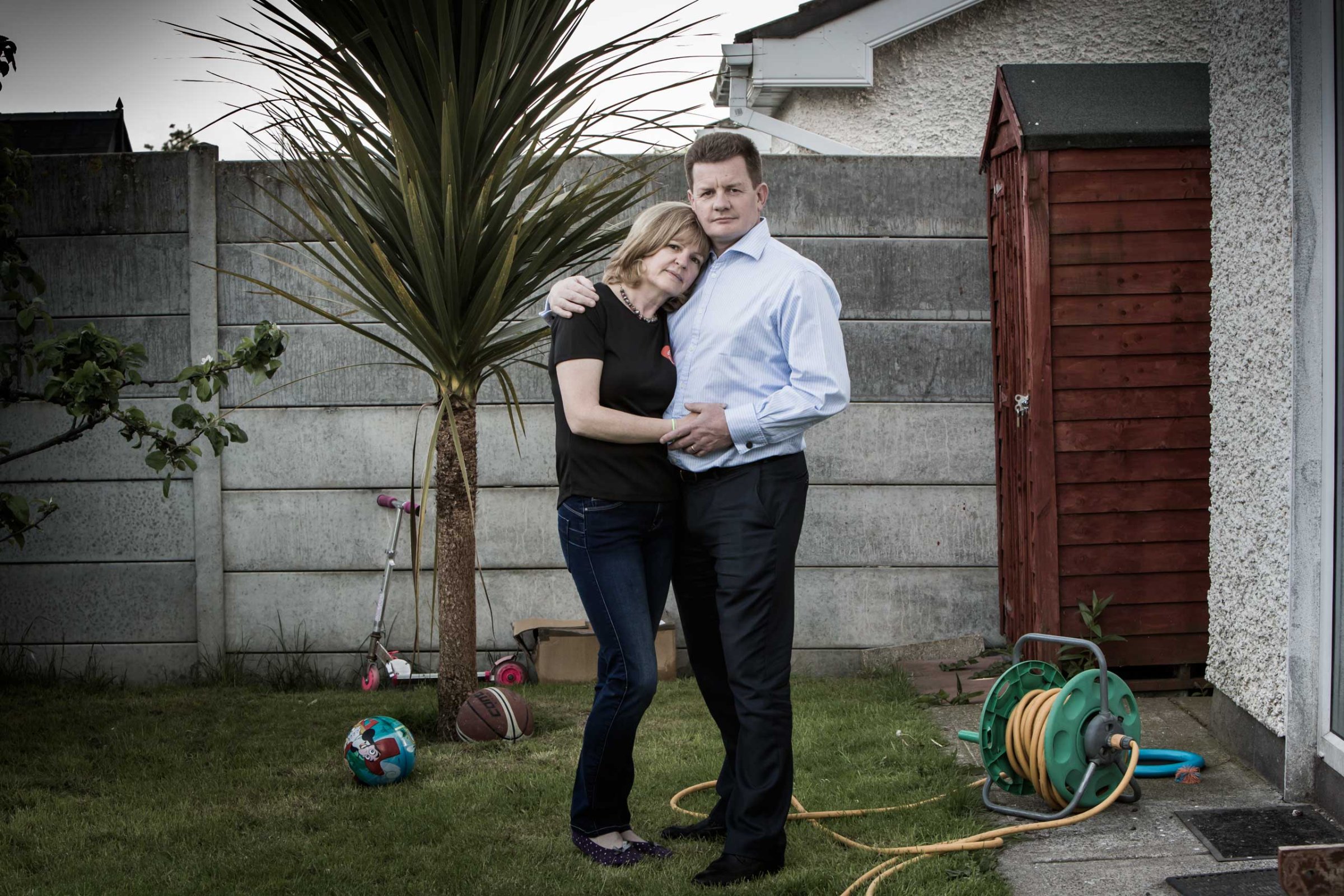
It’s estimated that around 160,000 Irish women have travelled to the U.K. for an abortion in the last 33 years. The actual figure is likely to be much higher – this number includes only women who gave Irish addresses. Many are unwilling to do so for fear of their families or friends finding out.
Amnesty International published a report on Tuesday slamming Ireland’s abortion laws and calling for them to be brought in line with the rest of the developed world.
Almost all women who left Ireland for an abortion and were interviewed say they felt lonely, afraid, ashamed and abandoned after having been forced to leave the country to have an abortion for medical or other reasons. As Irish legislation imposes an almost total prohibition of abortion, the reasons that 4,000 Irish women a year travel to terminate pregnancies involve a wide range of difficult and tragic circumstances.
Read More: Ireland’s Abortion Laws Treat Women Like Criminals Says New Report
In 2001, newly married couple Gerry and Gaye Edwards were devastated when 20 weeks into their first pregnancy they were told there was no prospect of survival for their baby after birth, and that the only solution open to them “in this jurisdiction” was to continue with the pregnancy and regular scans until birth occurred at the end of gestation. The baby would die almost immediately.
In Ireland healthcare providers who refer women to abortion services can be fined up to $4,000. Now, it’s much easier to receive information through the Internet yet the threat of criminal sanctions remains a significant “chilling factor” for women and medical personnel who fear criminal and professional recrimination.
Gerry Edwards said he felt angry and abandoned, “not just by the medical profession but by my own country.” He says: “We got the worst news we could possibly have in the middle of a much-wanted pregnancy, and it was like the whole country just washed its hands of us and left us on the street, literally. We just felt totally and utterly alone; we were given absolutely nothing. We were told there was no help in Ireland. I got a phone book and started ringing abortion clinics in London; they told us that we should go to a hospital. It felt like we were criminals in a black market operation – even though we had the right to travel and we had the right to information. We were still doing something abroad that is illegal here,” says Edwards.
In the end, the Edwards were able to travel to Belfast in Northern Ireland, which remains part of the U.K. “Nobody in Ireland could tell us what was in store for us – even the obstetrician or my GP couldn’t tell me,” says Gaye Edwards. “But thankfully we managed to be seen in a hospital in Belfast and they were so kind. I took tablets to induce labour and my mother and husband came with me.”
Mary (not her real name) had a similar experience on her second pregnancy in 2012. “My obstetrician was doing the scan and she thought something looked amiss. She said the baby’s eyes were quite prominent on the screen and she referred me to her colleague who did another scan. Within a few seconds into it, she looked at me and said “I’m so sorry.” She explained that the baby had anencephaly – the absence of a major part of the skull and portion of the brain that occurs during embryonic development, and that I was effectively a life-support for the baby – there was no hope for any life outside the womb. “The obstetrician told me that there was no option for us to have an induced labour in Ireland, but that there were options in the U.K. I could sense the frustration among the doctors that they couldn’t help us in any way – they couldn’t assist us with making arrangements to go to the U.K. – it was prohibited to do so.”
Mary had to travel to Liverpool in England to get medical treatment. “It was such a horrible journey – going to the airport at night time, setting your alarm for the morning to go to a strange place. I had to take medication to bring on premature labor, and then go back to the hospital later on – it felt awful walking around a city I don’t know – at least if we were at home, I could go to my own bed for a few hours.”
The baby, Rian, was born weighing 140 grams, under 5 ounces, and Mary was able to spend the night with him before he died. “The following morning it was so hard to leave him alone but there was no option to bring him home to bury him. We had to get him cremated which was organised by the hospital. A month later, we received him – delivered by courier. I had a tracking number and I could see he spent one night in a warehouse in Dublin; all alone. It was just so undignified – arriving in a scruffy courier bag. My son.”
More Must-Reads from TIME
- Donald Trump Is TIME's 2024 Person of the Year
- Why We Chose Trump as Person of the Year
- Is Intermittent Fasting Good or Bad for You?
- The 100 Must-Read Books of 2024
- The 20 Best Christmas TV Episodes
- Column: If Optimism Feels Ridiculous Now, Try Hope
- The Future of Climate Action Is Trade Policy
- Merle Bombardieri Is Helping People Make the Baby Decision
Contact us at letters@time.com